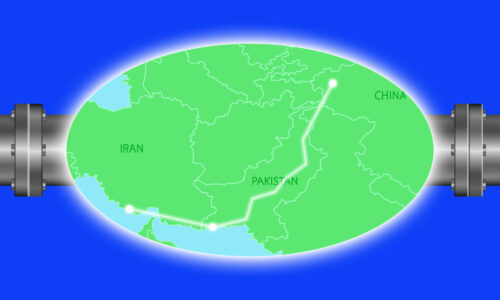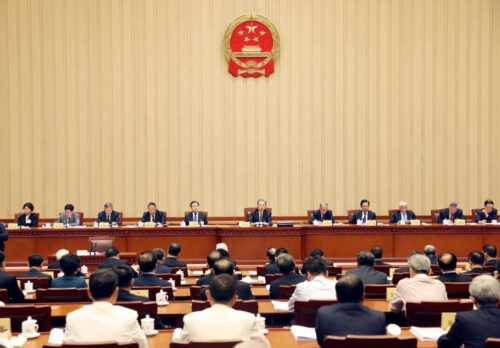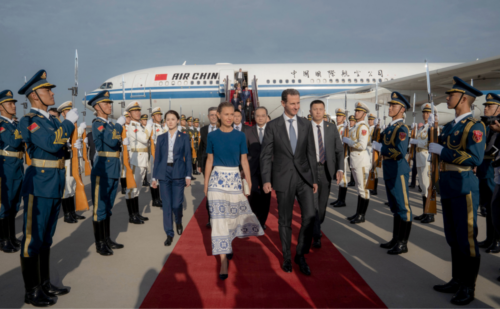A Chinese-run gold mine in Balochistan is making millions, but the locals aren’t getting any of it
Local discontent in Balochistan, Pakistan, is rising as the people who live around a gold and copper mine at Saindak feel excluded from the riches coming out of the ground.
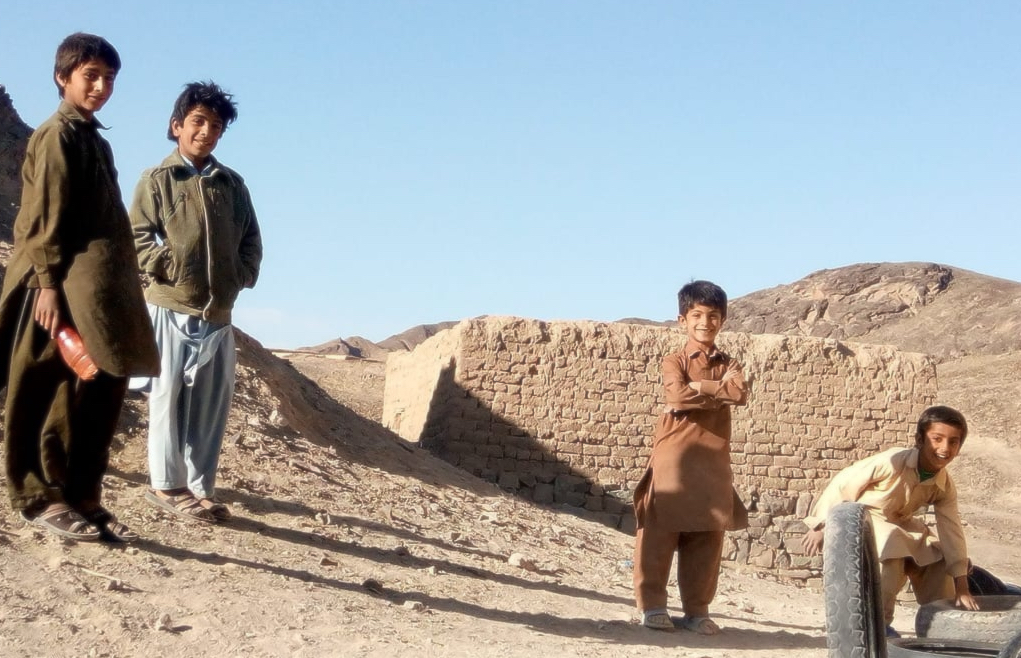
Pakistan’s southwestern Balochistan province holds rich resources, although it remains an impoverished region with a per capita GDP under $1,000 — that means most residents are members of the world’s bottom 1%.
China plays a crucial role in the local economy, and a Chinese company which mines gold, silver and copper in Balochistan province disclosed that it made profits of around $75 million in 2021, despite disruption to its operations caused by COVID.
The company, known as Metallurgical Construction Corp (MCC), has been operating near the town of Saindak in Balochistan’s district of Chagai for more than twenty years. It plans to continue there until 2037, when it expects the resources to be depleted.
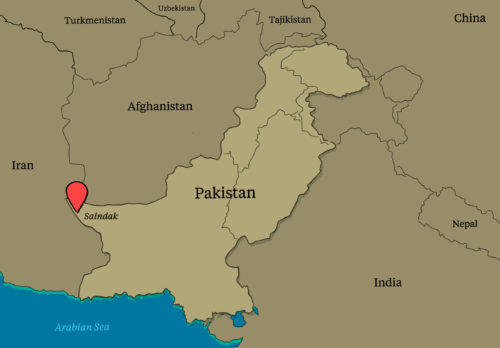
So what benefits has the community enjoyed as a result of this intensive operation? Supporters of the mine say it has helped to fund better education and health facilities, as well as creating jobs. However, many local people told The China Project their lives have not improved much.
Gold from the black mound
In the Balochi language, the word saindak, from which the main town takes its name, means ‘black mound’.
Copper and gold deposits were initially discovered near Saindak in the 1970s by Saindak Metals Ltd (SML) — a company wholly owned by the government of Pakistan — in collaboration with an engineering firm from China. The district of Chagai, which contains Saindak, lies close to Pakistan’s border with Iran.
The Saindak Copper-Gold Project was set up by Saindak Metals Ltd, a company fully owned by the Government of Pakistan, by the end of 1995. Pakistan and China signed a formal contract worth $350 million for development of the mine, initially a 10-year lease to to Metallurgical Corporation of China Ltd. (MCC), a subsidiary of China Metallurgical Group Corporation. The agreement was for 50% of revenues from the mine go to MCC, 48% go to the Government of Pakistan, and 2% go to the Balochistan provincial government.

The lease was later extended, with Pakistan’s share of revenue up to 53%, and 5% to 6.5% going to the Balochistan provincial government. But it is not clear from public documents how costs are calculated nor how the accounts for revenue are kept.
And ordinary local people certainly don’t feel as though they are seeing any benefits from the mine.
The area has a “medieval” feel, say locals

Tight security surrounds the mining complex. There are checkpoints manned by members of a Pakistani paramilitary force known as the Frontier Corps. Locals say the military presence is intrusive.
The Chinese government maintains that the benefits to the Pakistanis are significant. Hé Xùpíng 何绪平, the general manager of MCC, said in a January press release that the has spent hundreds of thousands of dollars to provide clean water to the area, as well as arranging free electricity and improvements to schools.
However, Kazim Baloch, a political activist in Chagai told The China Project that the area still has “features of the medieval era”.

“Mud houses, muddy and unpaved roads, a lack of potable water, poverty, deprivation, underdevelopment and backwardness still rule,” said Baloch.
However, a spokesman for the Pakistani side of the business emphasized its corporate social responsibility objectives, including better education and health facilities, more employment and flood responses. The official, speaking on condition of anonymity, told The China Project that the mine has created more than 2,000 jobs and has helped to pay for a hospital which uses ultrasound, X-ray machines and other advanced equipment. “More than ten thousand people visit the facility for checkups, diagnosis or treatment each year,” he said.
The mine creates jobs but are they good ones?
Akbar Notezai, an investigative journalist from Chagai associated with Pakistan’s leading media group Dawn recently published a report which said that the jobs created for local people are “menial” and the overall situation in the region is “pitiable.”
“Despite extracting gold and copper for two decades, why has the administration not yet constructed a metalled road? There are roads that lead to the company’s sites, but many villages are left without any roads.” Notezai told The China Project.
We also spoke to a lawmaker from Chagai who is sceptical about the claims made by the mine’s managers. Mir Arif Jan Muhammed Hasni, a member of the Balochistan Assembly, said: “So what if the company has set up a school, a hospital and provided electricity to a few thousand people in the vicinity of its project? NGOs have long been doing such things in far-flung areas of the province. This company has earned billions of dollars in the past twenty years, yet it has failed to reshape the socio-economic landscape of our region.”
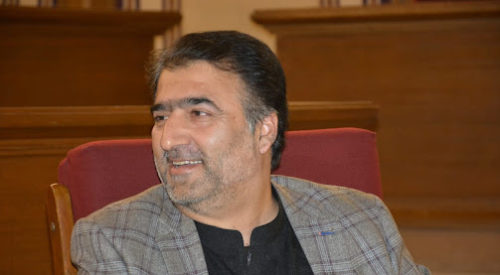
Hasni says the hospital cannot deal with emergency cases and has no ambulance service. Other people claim that as there is no female doctor, women are reluctant to use its facilities.
A councilor from Saindak, Mir Asif Khan Musazai, spoke to The China Project about his concerns for the future: “Yes, they have established a school and a hospital and they provide free electricity and drinking water to the villages adjacent to the mine but these facilities are only offered on a temporary basis. Once the Chinese return home, the school and the hospital could be closed and the electricity and water supply may be discontinued,” he said.
Some armed groups want to drive China from the region
 Activists regard it as unjust that Balochistan Province only receives less than 6% of the profits. “The province wants to decide on investment and it does not accept that the national government should have a say on the natural resources without the will of the people of Balochistan,” said Jan Muhammed Baloch, a political analyst.
Activists regard it as unjust that Balochistan Province only receives less than 6% of the profits. “The province wants to decide on investment and it does not accept that the national government should have a say on the natural resources without the will of the people of Balochistan,” said Jan Muhammed Baloch, a political analyst.
He pointed out that separatist groups are waging war against the state for an independent Balochistan, and want to force the Chinese out of the province. Baloch says the national government cannot accept such a demand, given the close political ties between China and Pakistan.
In the long term, people wonder what will happen when copper and gold are all removed from the earth. Will they be left with just a hole in the ground? Or will they be able to point to a significant improvement in the region’s standard of living?
